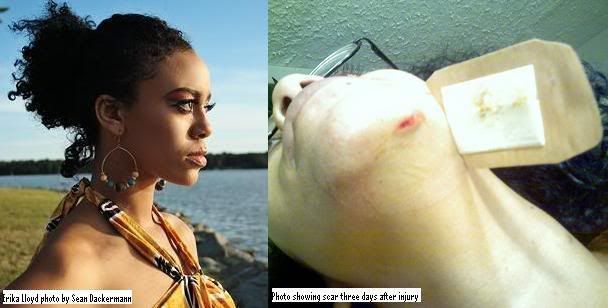
Imagine waking up on the floor, outside of your shower, with a bloody chin, several chipped teeth, and no recollection of what happened or how long ago it happened. Would you assume that such a frightening situation could have been the result of sleep deprivation?
Model/ College of William and Mary Freshman, Erika Lloyd need not imagine, she experienced the grim scenario this past Sunday. She had been doing exceptionally well in her classes and on exams, but long hours of studying began to replace essential hours of sleep.

Seven of the 19-year-old's teeth were either chipped or broken. "It felt like I had some peppermint candy in my mouth, but once I spit it out, I realized that it was small chips of my teeth", she explained.
Lloyd recalled feeling extremely weak following the incident, and began suffering from migraine headaches.
Sleep deprivation is common amongst students, especially college freshman. Students in their late teens or early 20s should get around nine hours of sleep each night. However, a National Sleep Foundation survey revealed that the average student only sleeps for about 6.8 hours nightly.
A 1997 University of Minnesota study discovered that students whose classes started later, got more sleep and earned better grades. Five years ago, Duke University eliminated its earliest classes, and considered orientation programs that would educate freshman on the importance of sleep.
Teenagers have the ability to resist sleep better than adults, due to a developmental variation in the circadian cycle. Although, the more one pushes the limit of sleep deprivation, the more risks they take.

What an interesting story, Bryan. I have printed it and redlined it. You will receive the hard copy back in class next Tuesday.
ReplyDeleteAny relation to you, by the way?
ReplyDelete